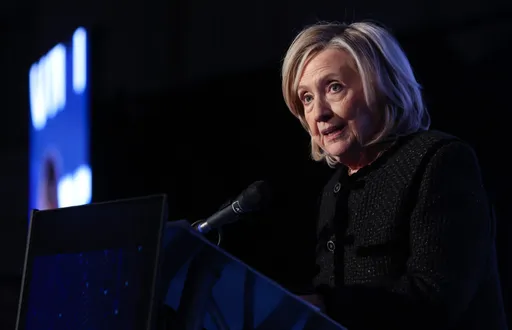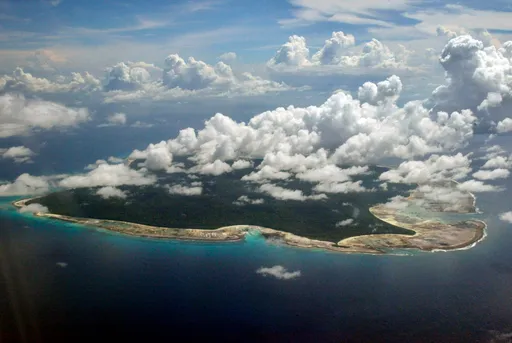Internet freedom advocates have warned new Indian social media regulations could pose a threat to freedom of expression, after New Delhi announced plans for tough new rules that could force platforms to remove content it deems objectionable.
Under the new regulations — unveiled on Thursday and due to come into force in three months — social media platforms, online streaming services and digital news services could be forced to remove content 36 hours after a complaint is made.
Tech companies will also have to disclose the origin of a "mischievous tweet or message" if asked by an Indian court or the government.
That could lead to encrypted messages — a fundamental selling point for the Facebook-owned platform Whatsapp, which boasts hundreds of millions of users in India — being exposed.
Mozilla, developer of the Firefox internet browser used by hundreds of millions of people around the world, called for the regulations to be withdrawn.
"In their current form, these rules will undeniably harm freedom of expression, privacy and security and could be subject to legal challenges," said Mozilla Corporation public policy advisor Udbhav Tiwari.
"Provisions like traceability of encrypted content, harsh content take down timelines and automated content filtering are blunt and disproportionate to the intention behind these changes."
Activists warn
Other Indian activists have also warned that the regulations could be challenged in court.
"I think these new rules are extremely worrisome because they are imposing a regulation on free speech and privacy without any backing of law," Nikhil Pahwa, founder of a digital news portal and a cyber activist, told AFP.
"In my opinion all these rules should be challenged in court and if they are, I doubt they would hold up."
Facebook and Twitter, for whom India's 1.3 billion people are a key market, have said they are studying the guidelines.
"We look forward to continued engagement with the government of India to strike a balance between transparency, freedom of expression, and privacy," said a Twitter spokesperson.
The social media giant wants regulation "that protects the open internet, universal access, and promotes competition and innovation," they added.
New Delhi accused the big tech firms of "double standards" as it announced the new regulations on Thursday.
READ MORE:Indian police arrest activist linked to Greta Thunberg's movement
Battle with Twitter
Prime Minister Narendra Modi's administration has been in a protracted battle with Twitter over protests by tens of thousands of farmers against government market reforms, during which the social media giant refused a government order to delete hundreds of accounts and comments.
Information Technology Minister Ravi Shankar Prasad said tech companies have to be "more responsible, more accountable", describing the rules as "soft-touch oversight."
A government official said talks over the plans had already started with the tech companies.
"They accept that there will have to be some kind of regulation," the official said on condition of anonymity. "There could be some changes to the rules."
Angry twitter storm
Meanwhile, "Spider-Man" star Tom Holland had to grapple with an angry Twitter storm in India on Friday in a case of mistaken cyber identity.
A historian with the Twitter handle @holland_tom tweeted a post mocking Indian Prime Minister Narendra Modi on Wednesday after a huge cricket stadium was renamed after him.
"I'm a huge admirer of the modesty Modi showed in naming the world's largest cricket stadium after himself," the tweet said.
The post prompted an angry backlash in India, where people mistook the Twitter account with that of another Tom Holland — the 24-year-old British star of the "Spider-Man" series of Marvel movies — whose handle is @TomHolland1996.
Soon the hashtag #BoycottSpiderMan started trending in the country of 1.3 billion people.
"This is India's internal matter. We will teach you a lesson of lifetime. #Boycottspiderman," said one user in response to the historian's tweet.
"You conspirator, conspiring against global leader (Modi). You just wait, Delhi police is coming for you," said another.
The actor has been active on Twitter this week, teasing fans with possible titles for the newest film in the series.
The #BoycottSpiderMan hashtag then gained further traction as Twitter users mocked others for their misdirected vitriol.
Historian Holland later apologised, tweeting, "Oh dear - I seem single-handedly to have destroyed prospects for the next Spider-Man in India."
"I should have remembered that with great power comes great responsibility," he said, echoing a famous Spider-Man quote.
Tongue-in-cheek, he added, "Just for the record, & to save Marvel's profits in India, I freely acknowledge that Narendra Modi is a man of immense humility, and that his naming the world's largest cricket stadium after himself is in no way quite hilariously immodest."
The stadium in Ahmedabad in Gujarat state was renamed on Wednesday from Motera to Narendra Modi.
The 110,000-seat venue was the pet project of Modi who was the state's chief minister before becoming India's prime minister in 2014.























